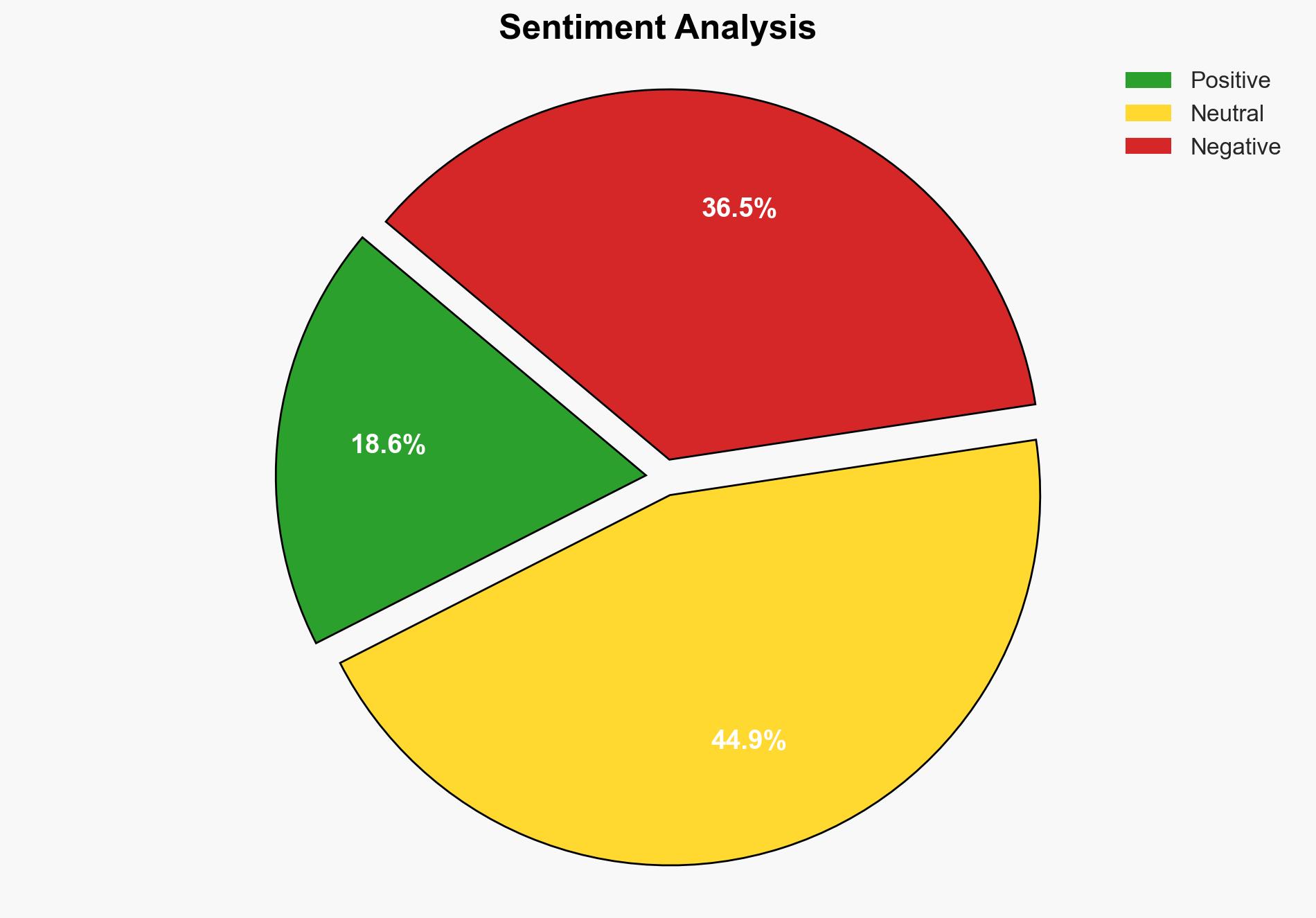Stop the Weaponization of Humanitarian Aid – CounterPunch
Published on: 2025-03-12
Intelligence Report: Stop the Weaponization of Humanitarian Aid – CounterPunch
1. BLUF (Bottom Line Up Front)
The humanitarian crisis in Gaza is exacerbated by recent legislative actions by Israel, which have outlawed the United Nations Relief and Works Agency (UNRWA). This move threatens essential services for millions of Palestinian refugees, leading to severe food insecurity and potential malnutrition among vulnerable populations. The international community, including organizations like Amnesty International and Human Rights Watch, has raised concerns about the implications of these actions. Immediate diplomatic engagement and humanitarian intervention are recommended to address the escalating crisis.
2. Detailed Analysis
The following structured analytic techniques have been applied for this analysis:
General Analysis
Israel’s recent legislative measures against UNRWA are perceived as a strategic maneuver to weaken Palestinian support structures. The ban on UNRWA disrupts the delivery of critical services such as food assistance, education, and healthcare, which are vital for the survival of Palestinian refugees in Gaza. This action is viewed as a violation of international law and has been condemned by various human rights organizations. The humanitarian crisis is further compounded by the ongoing conflict, which has resulted in civilian casualties and infrastructure damage.
3. Implications and Strategic Risks
The ban on UNRWA poses significant risks to regional stability and international relations. The humanitarian crisis could lead to increased migration pressures, regional instability, and heightened tensions between Israel and neighboring countries. The potential for escalating violence and further civilian casualties is high, which could draw international condemnation and impact diplomatic relations. Economically, the disruption of aid could lead to increased poverty and unemployment rates, further destabilizing the region.
4. Recommendations and Outlook
Recommendations:
- Engage in diplomatic efforts to encourage Israel to lift the ban on UNRWA and restore humanitarian aid to Gaza.
- Increase international funding and support for alternative humanitarian organizations to fill the gap left by UNRWA’s absence.
- Promote dialogue and negotiations aimed at achieving a sustainable political solution to the Israeli-Palestinian conflict.
Outlook:
In the best-case scenario, diplomatic interventions lead to the reinstatement of UNRWA services, alleviating the humanitarian crisis. The worst-case scenario involves further deterioration of conditions in Gaza, resulting in increased casualties and regional instability. The most likely outcome is a prolonged humanitarian crisis with intermittent international interventions, unless significant diplomatic progress is made.
5. Key Individuals and Entities
The report mentions significant individuals and organizations, including Amnesty International, Human Rights Watch, and the Lemkin Institute for Genocide Prevention. Additionally, UNRWA and its executive director are highlighted as central figures in the ongoing humanitarian efforts.





